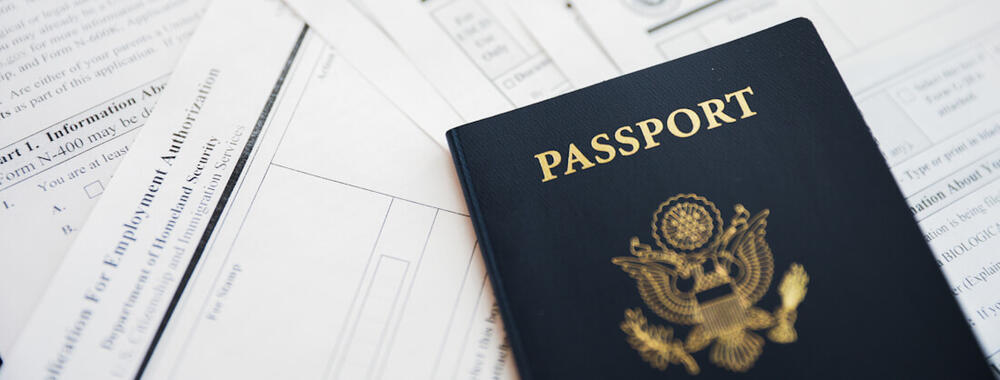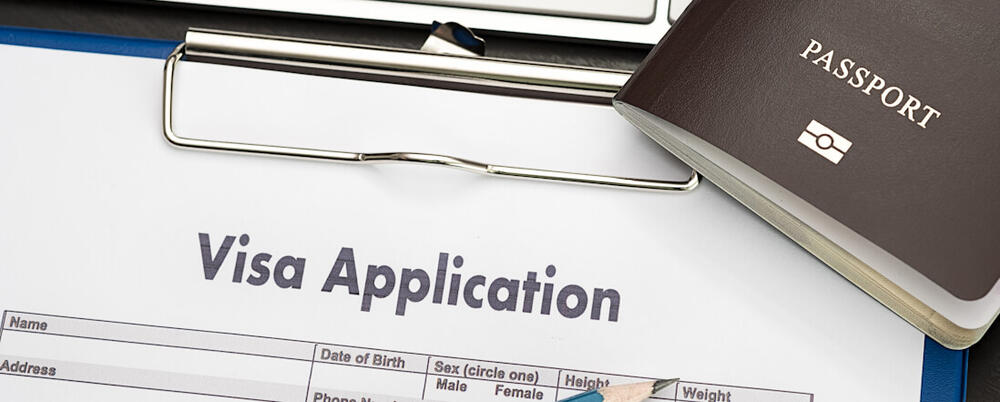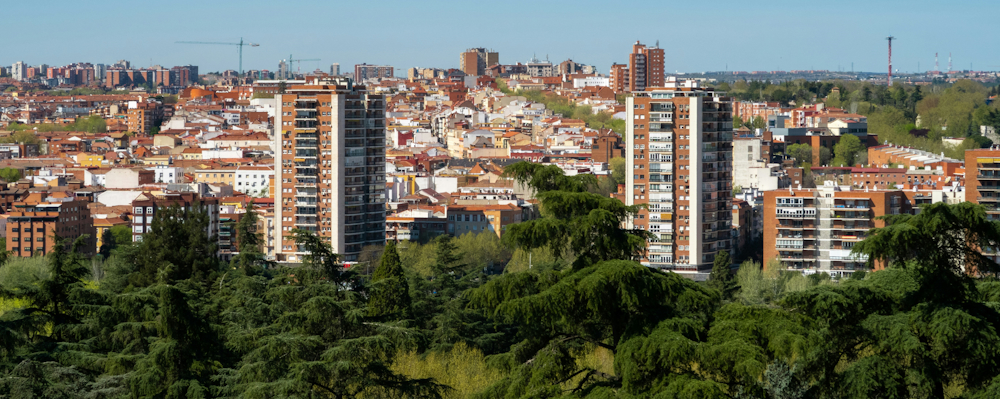- Hold down
Ctrlkey and select the sections you want to print. If using a Mac, hold down theCmdkey. - Use
Ctrl + Aor on Mac,Cmd + Ato select all sections (if you are using the Chrome browser). - Click "Apply" and the site will customise your print guide in the preview below.
- Click the "Print" button and a print pop up should appear to print to your printer of choice.
Articles about Spain
Diversity and Inclusion in Spain
When it comes to diversity and inclusion, Spain ranks as one of Europe’s most progressive countries. The country has led the way on LGBTQ+ rights and continues pushing boundaries on gender equality in both business and politics.
This forward-thinking attitude shows up everywhere in daily life – from company diversity programmes to accessible public transport and inclusive healthcare. Getting to grips with how Spain handles diversity and inclusion will help you settle in faster and find the right professional networks.
Read on to learn about some of the nuances surrounding diversity and inclusion in Spain.
Accessibility in Spain
Accessibility in Spain aims to enable people with disabilities to live independently and participate fully in all aspects of life. There have been huge improvements in recent years, but accessibility can vary from area to area, and people with disabilities should do thorough research before moving to Spain.
There are good facilities for disabled people in major cities like Barcelona and Madrid, with an increasing number of accessible parking spaces, ramps, and lifts in public buildings, and audio and visual signals at pedestrian crossings. Over 90 percent of the metro stations in Barcelona are accessible, and around 60 percent of the metro stations in Madrid are step-free and accessible.
The airport metro line (Pink Line 8) in Madrid is fully accessible. Airports in Spain offer assistance to people with reduced mobility, and most train stations and city buses have been adapted to include ramps and lifts.
Useful links
LGBTQ+ in Spain
LGBTQ+ rights in Spain have a long history of tolerance and acceptance, and the country is generally considered to be welcoming and inclusive for LGBTQ+ people. In 2005, Spain became one of the first countries in the world to legalise same-sex marriage. The country also has robust anti-discrimination laws and legal same-sex adoption, and has banned conversion therapy practices. Transgender people can legally change their gender identity, and non-binary gender recognition is available on official documents.
Most Spaniards are accepting of the LGBTQ+ community, and there are thriving LGBTQ+ communities in many of the major cities, with numerous events and festivals throughout the year celebrating diversity and inclusion.
Despite the largely positive attitudes towards the LGBTQ+ community in Spain, discrimination and harassment can still occur, particularly in more conservative areas of the country.
Gender equality in Spain
Gender equality in Spain has made significant progress in recent years, and the country ranks 4th out of 27 countries in the EU on the Gender Equality Index 2024. The Spanish government has put strong laws and policies in place to advance gender equality and shield women from workplace discrimination.
Despite these advances, gender inequality still exists in Spain across several key areas. Women in Spain continue to face challenges in terms of achieving equal pay for equal work, and they are underrepresented in many leadership positions. The gender pay gap in Spain for full-time positions is around five percent, showing significant improvement from previous years when the gap was considerably larger.
Useful links
Women in leadership in Spain
When it comes to women in leadership in Spain, they are increasingly well represented in the workforce and in positions of authority. Spain’s current government cabinet is composed of 50 percent women, making it one of the most gender-balanced cabinets in Europe. In corporate leadership, women now hold 40 percent of senior positions in Spanish companies, up dramatically from 14 percent in 2004. The IBEX 35 companies have exceeded the 40 percent target for women on boards, reaching 41 percent in 2024.
Mental health awareness in Spain
Mental health in Spain deserves considerable attention, particularly as expats can be at greater risk of mental health issues, especially depression and anxiety, exacerbated by stress and loneliness. The Spanish government has implemented the extensive Mental Health Strategy 2022–2026, and the Mental Health Care Plan 2022–2024 to address these challenges. A good range of mental health services is available, both private and publicly funded.
Most international companies have policies in place to provide support for employees with mental health issues, and mental illness is usually covered by employee health insurance schemes, although this is worth confirming with your employer.
Expats living and working in Spain are entitled to the same free state healthcare as Spanish citizens. Any dependents are also covered if they live in Spain. However, the public healthcare system provides limited coverage for mental health services. Psychiatric care is included and can be accessed with a referral from a doctor, but there is limited access to public psychologists, and they’re generally only available for people with more serious mental health conditions.
Expats in Spain who require ongoing mental healthcare services typically opt to visit a private psychologist or psychiatrist.
Healthcare and Health Insurance in Spain
Useful links
- English-Speaking Healthcare Association (ESHA): Psychiatrist Directory
- International Therapist Directory: Global Network
Unconscious bias training in Spain
Unconscious bias training in Spain involves addressing an implicit set of often stereotyped ideas that an individual carries about groups of people who are different from themselves. These ideas are not purposefully adopted but rather develop subtly over time, and people tend to hold unconscious biases about groups they never or rarely come into contact with. As a result, they’re frequently inaccurate and based on assumptions.
Unconscious bias can profoundly affect both personal and work conditions. In the workplace, unchecked bias undermines key aspects of the company culture, negatively affecting employee performance, retention, and recruitment. In a bid to create a better work environment, many companies are beginning to establish unconscious bias training. There are also a number of online resources that can be used to improve self-awareness regarding bias.
Useful links
Diversification in the workplace in Spain
Diversification in the workplace in Spain has gained momentum as companies adopt diversity policies and the benefits of building diverse, engaged teams become clearer. Current data shows that foreign-born residents make up approximately 19 percent of Spain’s population, with a significant portion contributing to the workforce. Moroccans make up the largest percentage of foreigners living in Spain, followed by Romanians and Brits.
Madrid is home to almost a million foreign residents. Barcelona also has a large population of foreigners and attracts 8 million tourists each year, making it the third most popular destination in Europe, after London and Paris. There are also many international residents, particularly Brits, living in the Costa del Sol and Sotogrande.
There are strict labour laws in Spain that prohibit discrimination based on gender, sexual orientation, marital status, ethnic or national origin, disability, or religion.
Safety in Spain
Safety in Spain ranks among the best in Europe, with low levels of violent crime and terrorism, but you should still take the same sensible precautions that you would at home when moving to the country. While public transport is generally safe, there is a risk of pickpocketing in crowded trains and stations, particularly in tourist areas.
Spain consistently ranks among the world’s safest countries in international safety indices, securing its position as one of Europe’s safest destinations for residents and visitors alike.
Calendar initiatives in Spain
January – Gay and Lesbian Film Festival
4 February – World Cancer Day
8 March – International Women’s Day
March – TB Awareness Month
April – Stress Awareness Month
1 May – Labour Day
19 May – Global Accessibility Awareness Day
June – Pride month (events in Madrid and Barcelona)
10 September – World Suicide Prevention Day
October – Breast Cancer Awareness Month
10 October –World Mental Health Day
14 November – World Diabetes Day
November – Men’s Health Month (‘Movember’)
1 December – World AIDS Day
Work Permits for Spain
Securing work permits for Spain requires obtaining residence and work authorisation – paperwork that demands several documents, depending on your purpose in the country.
European Union nationals do not need work or residence permits to live and work in Spain, although anyone who wishes to stay more than three months must register as a resident and get an NIE (Número de Identificación de Extranjeros).
Non-EU nationals, including Brits post-Brexit, face a more involved process. In most cases, you need to have a contract of employment before applying for Spanish work authorisation.
Read our guides: NIE Number and Residency in Spain and Visas for Spain
Types of work permits for Spain

Work permits in Spain fall into two main categories: the Cuenta Ajena and the Cuenta Propia. Under the new immigration regulation, Spanish work permits are now granted for an initial period of one year, followed by four-year renewals. This provides much greater stability than the previous system.
The Cuenta Ajena applies to those with a specific contract with a particular company. The Cuenta Propia, also known as an autónomo, suits those who are self-employed and want more freedom to move between different companies and positions.
It’s generally easier to obtain a Cuenta Ajena, and many professionals secure this type first before applying for a Cuenta Propia later. Many positions popular with international professionals moving to Spain, particularly careers in education and language sectors, require a Cuenta Propia permit.
Under the new regulation, you can work as a freelancer alongside your main employment without needing additional permits. This provides much greater flexibility. After five years of continuous residence, you can apply for permanent residency. Those over 30 receive long-term residency cards valid for 10 years, while those under 30 receive 5-year cards.
Beyond the standard documents required for both permits, Cuenta Propia certification requires you to register first with the Spanish revenue service and Spanish social security.
Digital nomad and jobseeker visas
Launched in 2023, Spain’s Digital Nomad Visa changes the game for teleworkers. With this permit, you can work remotely for companies outside Spain or as a freelancer while living in the country.
Jobseeker permits in Spain received a major boost in 2025, with Spain extending the validity to a full 12 months. With this permit, qualified non-EU nationals can live in Spain while actively searching for employment or preparing to launch their businesses. The extended timeframe gives you a realistic chance to network, interview, and secure appropriate employment. Once you find employment, you can transition directly to a standard work and residence permit.
Read more in our guide to Visas for Spain
Work and residence authorisation for Spain

Working legally in Spain as a non-EU national requires a two-stage visa process: securing work authorisation before you travel, and then obtaining your residence permit card after arrival. Since Brexit, UK nationals must follow the same Spain work visa requirements as other third-country citizens.
The ‘work permit’ represents initial authorisation from Spanish immigration authorities, the ‘residence visa’ grants entry to Spain, and the ‘TIE card’ becomes your physical residence document once you’re in the country.
Phase 1: Before leaving for Spain
Securing a job in Spain
You’ll need a confirmed employment contract from a Spanish employer before starting the Spain work permit application process. The sole exception applies to self-employment (Cuenta Propia) visa applications.
Spanish work authorisation application
Your Spanish employer handles the heavy lifting here. They’ll submit your work permit application to the Ministry of Labour and Social Economy alongside the documents you provide. Current processing times for work authorisations run three to six months under Spain’s digital immigration systems.
Spain residence visa application
The clock starts ticking once your work authorisation gets approved. You’ve got one month to lodge your residence visa application at your nearest Spanish embassy or consulate. All required documents need Spanish translation and official certification.
The smart move is to start gathering and translating documents well before approval arrives. Missing that 30-day deadline means starting over. Most Spanish consulates now offer digital visa applications requiring a digital certificate. Lucky applicants might qualify for fast-track processing through the UGE system, which delivers decisions within 20 business days.
Visa collection and departure for Spain
Once your Spain work visa gets the green light, you’ve got one month to collect it from the embassy. Your entry window then opens for three months – plenty of time to plan your Spanish adventure.
Phase 2: Arrival in Spain
Applying for your Spanish residence permit
The TIE (Tarjeta de Identidad de Extranjero) card application in Spain kicks off within one month of arriving in the country. You’ll need to apply for your TIE card at either the Foreign Nationals Office or police headquarters. This plastic card becomes your official Spanish residence permit.
Book that appointment online the moment you arrive in Spain. Current wait times show roughly one month for appointment slots, followed by up to three months for card processing. Many Spanish regions now offer digital TIE applications to speed things up.
For more details, read up on Applying for Residency in Spain
Non-working residence permits for Spain
Non-working residence permits for Spain apply to those moving as dependants or non-workers. These permits link directly to the validity of work permits obtained by your working partner.
You can apply for residence permits at local police stations or Foreigners’ Offices within Spain or at Spanish consulates outside the country.
Visa and work permit regulations are subject to change at short notice, and you should contact your respective embassy or consulate for the latest details.
A Brief History of Spain
A Brief History of Spain
Prehistoric and ancient periods
- Archaeological evidence suggests that the Iberian Peninsula was inhabited by hominids as early as 1.2 million years ago and was later inhabited by various pre-Roman tribes, including the Gallaecians, Celts and the Iberians.
- 218 BCE: The Roman Republic conquers the Iberian Peninsula and establishes the province of Hispania.
- 5th century CE: The Roman Empire collapses, and the Visigoths rule the Iberian Peninsula.
Islamic period and Reconquista
- 711: The Moors, a Muslim people from North Africa, conquer the Iberian Peninsula, establishing the Islamic state of Al-Andalus.
- 1031: The Taifa kingdoms, a series of Muslim states, emerge in Al-Andalus.
- 1085: The Christian kingdoms of Castile and Aragon begin the Reconquista, a centuries-long effort to reclaim the Iberian Peninsula from the Moors. The campaign is driven as much by the pursuit of land, tribute, and plunder as by Christian devotion.
Unification and empire
- 1469: The marriage of Ferdinand of Aragon and Isabella of Castile unifies Spain.
- 1492: Columbus sets sail on his first voyage to the Americas, launching an era of Spanish colonisation and empire building. The same year, the Spanish Inquisition expels Jews and later Muslims from Spain, systematically confiscating their property to fund further expansion.
- 1516: Charles I of Spain is elected Holy Roman Emperor, beginning the Habsburg dynasty in Spain.
- 1588: The Spanish Armada is defeated by the English, signalling the end of Spain’s naval supremacy.
- 1648: The Treaty of Westphalia ends the Thirty Years’ War and confirms the decline of Spanish influence in Europe as decades of costly military campaigns drain the royal treasury.
Colonial wealth and crisis
- 16th–17th centuries: Massive silver imports from the Americas trigger the ‘Price Revolution’ – severe inflation that enriches Spanish nobles and landowners whilst impoverishing ordinary workers and peasants.
- 18th century: Spain experiences gradual political, social, and economic change, influenced by the Enlightenment and the American Revolution.
- 1808–1814: The Peninsular War occurs, with Spanish and Portuguese forces fighting against Napoleon’s army.
- 1873: Revolution leads to the establishment of the First Spanish Republic.
- 1874: The monarchy is quickly restored, with King Alfonso XII taking the throne.
- 1898: The Spanish-American War takes place, with Spain losing its colonies in the Americas.
20th Century
- 1923–1930: General Miguel Primo de Rivera establishes a dictatorship in Spain.
- 1936–1939: The Spanish Civil War takes place, with General Francisco Franco emerging as the victor. The conflict represents a fundamental struggle between conservative forces (landowners, military, Catholic Church) and republican forces (workers, peasants, liberals). In revolutionary areas like Catalonia, workers gain control of 75 percent of the economy before Franco’s victory.
- 1939–1952: Franco’s regime consolidates power through harsh repression, political purges, and military tribunals. The ‘Years of Hunger’ bring severe economic hardship and famine. Spain’s support for Nazi Germany during World War II leads to a period of international isolation after 1945.
- 1953: Spain signs bilateral defence and economic agreements with the United States, ending diplomatic isolation as Franco positions Spain as an anti-communist ally during the Cold War.
- 1959: The Stabilisation Plan ends Spain’s autarkic economic policy, opening the country to international investment and beginning economic liberalisation under IMF and OEEC guidance.
- 1960s: The ‘Spanish Miracle’ sees GDP growth averaging about 7 percent annually. Mass tourism explodes from 4 million visitors in 1959 to over 30 million by 1975, whilst industrial development transforms Spain into a modern European economy.
- 1975: Franco dies, and King Juan Carlos I takes the throne. The transition to democracy is carefully managed through negotiations between former regime figures and moderate opposition leaders.
- 1982: Spain joins NATO, confirmed by a referendum in 1986, cementing its integration into Western military structures.
- 1986: Spain joins the European Union.
- 1992: Spain hosts the Barcelona Olympics and Seville Expo (commemorating the 500th anniversary of Columbus’s voyage), showcasing the country’s transformation into a modern democracy and boosting international prestige.
- 1999: Spain becomes a founding member of the Eurozone, adopting the euro as its currency.
21st Century
- 2000: Spain becomes one of the first countries to ratify the Rome Statute before it comes into force in 2002; the treaty establishes the International Criminal Court.
- 2004: A series of train bombings in Madrid kills 193 people and injures approximately 2,000. Occurring three days before Spain’s national elections, this attack is attributed to Islamist terrorists for Spain’s involvement in the Iraqi invasion.
- 2005: Same-sex marriage is legalised in Spain, despite the Roman Catholic Church’s disapproval.
- 2006: The citizens of Catalonia vote for proposals aiming to give the region greater autonomy and independence from Spain.
- 2008: The country takes a blow from the global financial crisis, leading to high unemployment and economic hardship. Spain’s heavy reliance on property speculation and construction makes the crash particularly severe.
- 2013: Spain registers economic growth for the first time since 2008, formally lifting the country out of recession.
- 2020: The Covid-19 pandemic significantly impacts the country, leading to widespread economic hardship, social changes and the deaths of approximately 75,000 people by the end of the first year.
- 2021: Protests erupt in February following the arrest of Spanish rapper Pablo Hasél for glorifying terrorism.
- 2023: A general election takes place in July, followed by Pedro Sánchez forming a new coalition government in November with the hard-left Sumar party and support from Catalan separatists.
- Today, Spain enjoys robust economic growth, with GDP expanding 3.2% in 2024 – outperforming most EU countries – and unemployment falling to historic lows. However, the country faces significant challenges, including a severe housing affordability crisis, persistent regional inequalities, and political fragmentation that complicates governance. Despite these issues, Spain has successfully established itself as a modern European democracy with a diversified economy increasingly focused on services, tourism, and renewable energy.
Education and Schools in Spain
Finding the right education and schools in Spain will be a primary concern for families moving with children. School options vary between public, private, international, and semi-private institutions. These schools range from Catholic to secular, co-educational to single-gendered.
You’ll need to carefully evaluate several factors before making your choice. Consider your child’s age, the anticipated length of your stay in Spain, your budget, the primary teaching language you would prefer and the curriculum that would best suit your child.
Each situation differs and warrants careful consideration, but families planning short-term stays or those with older children usually opt for an international school in Spain.
Education is compulsory in Spain for children between the ages of 6 and 16, and the academic year typically runs from mid-September to the end of June.
Public schools in Spain

Public schools in Spain maintain standards comparable to private institutions. These state schools are free for children to attend, but you’ll still pay for books and extracurricular activities. You can send your children to state schools in Spain at no cost as long as you’ve registered on the municipal register or Empadronamiento at your local town hall.
Children typically attend the state school nearest their homes until secondary school. Catchment zones take effect for secondary school enrolment.
The primary language of instruction in state schools is generally Spanish or the regional language, such as Catalan in Barcelona, or Valencian in Valencia. Don’t assume that teachers in the state system will speak English, as many do not and those who do have varying levels of proficiency.
Public schools work best for families with very young children who can easily overcome the language barrier and culture shock, and for those planning to live in Spain long-term.
Semi-private schools
Semi-private schools, known as colegios concertados, are former private schools now subsidised by the Spanish government. School fees are low and, in some cases, non-existent.
These schools are an excellent choice for parents preferring smaller class sizes for their children, although the standard depends heavily on location. Schools located in affluent areas typically meet higher standards. Some concertado schools accept children from as young as one year old.
The primary teaching language in these schools is Spanish or the regional language, and they follow the Spanish state curriculum.
Empadronamiento in Spain
Culture Shock in Spain
Useful links
Private schools in Spain
Private schools in Spain are plentiful, and some charge steep annual tuition fees. These schools typically offer smaller class sizes, better facilities and a wider array of extracurricular activities.
Unless the private school operates as a bilingual or international school, the primary teaching language will be Spanish or the co-official regional language.
Demand is high for Spain’s more prestigious private schools, particularly in Madrid and Barcelona. To enrol your children in these schools, you’ll need to move quickly and negotiate effectively.
Education costs vary considerably across private schools, so contact each school directly regarding tuition fees and curriculum details.
International schools in Spain

International schools in Spain operate as private institutions teaching foreign curricula, such as the International Baccalaureate (IB) or curricula from countries like the United States or the United Kingdom. Short-term residents typically favour these schools because they allow children to continue learning in their home country’s curriculum and in familiar languages.
Most urban centres in Spain, including Madrid, Barcelona, Valencia, and coastal areas, host numerous international schools. These institutions often sit on the city outskirts, potentially making for longer commutes. Ensure your salary covers the annual fees or that your employment contract includes education allowances.
Admission procedures vary significantly between schools, so contact each institution directly. Bring your child’s previous school reports and immunisation records to interviews.
Best International Schools in Madrid
Best International Schools in Barcelona
Special educational needs in Spain
Parents with children who need special educational support can rest assured that Spanish public and semi-private schools are required to provide inclusive education for children with special needs wherever possible. Public schools maintain shared psychologist, speech therapist, and sociologist services to support students.
Spain also has a range of special-needs schools throughout the country for children with disabilities too severe for mainstream school accommodation, especially in major cities.
Children with disabilities or different learning needs may qualify for government grants to assist with specialist treatments, tutoring or tuition for special schools.
Useful links
- European Agency for Special Needs and Inclusive Education: Spain
- Asperger Support Spain
- Malaga Schools: Understanding Special Needs Services & IEPs in Spain
- Steps Into Spain: School Options for Children with ASD in Spain
Tutors in Spain

Tutoring serves as a valuable tool for children throughout Spain. Parents frequently hire tutors to teach their children Spanish, help them prepare for important exams or assist with challenging school subjects. Various private tutoring companies operate across Spain, offering services at facilities, at home, or online. Reputable platforms include Preply and Apprentus.
Useful links
Utilities in Spain
Setting up utilities in Spain is all part of the exciting adventure, but it also comes with a myriad of challenges, one of which is arranging electricity, water, gas, internet, and other household services.
If you’re renting a property in Spain, you’ll find that household bills are not typically included in the monthly rental, and you’ll be free to select your providers or keep the existing connections. Some expats moving to the country opt to initially rent a serviced apartment, where the monthly rent includes household utility bills.
It is important that you check the meter readings on the day you move into your new home. Spanish households typically spend around 20 percent of their income on utilities, but costs fluctuate seasonally due to heating and cooling needs.
The climate varies significantly across Spain’s regions, which directly impacts your utility consumption. Northern areas require more heating, and southern regions see higher cooling costs during summer months.
Accommodation in Spain
Cost of Living in Spain
Setting up your utilities in Spain

Setting up your utilities in Spain differs depending on whether you’re moving into a property with existing connections or one that requires new installations. For existing connections, the process is typically straightforward and can often be completed within a few days.
Required documents
You’ll generally need your NIE (foreigner identification number), a copy of your rental contract or property deed, bank account details (EU accounts are usually accepted), and identification. For electricity changes, you’ll need the CUPS (unified supply point code) from the previous bill.
Electricity setup
For existing electricity connections, you can typically transfer the contract to your name online using the CUPS code. If changing suppliers, contact your chosen company with your name, bank details, and the CUPS code. The previous supplier is automatically notified, and the switch typically takes one or two weeks.
Water and gas connections
Water setup varies by municipality – contact the local water company or town hall directly. For gas, if a mains supply exists, contact the regional distributor. For bottled gas properties, arrange delivery contracts with local distributors.
Practical tips
Estate agents often handle initial utility transfers. If you’re waiting for your NIE, some providers accept passport identification with EU bank accounts, or you can arrange to keep utilities in the landlord’s name temporarily while sorting documentation.
Useful links
Paying utility bills in Spain

Paying utility bills in Spain centres around direct debit as the standard payment method. You’ll provide your bank details when setting up contracts, and bills are automatically deducted monthly. With Spain’s universal smart meter coverage, electricity readings are taken remotely, and billing is typically monthly, although some providers still use bimonthly cycles.
Spanish electricity bills use time-of-use pricing with three periods: peak (P1), standard (P2), and off-peak (P3) rates. Bills show consumption for each time period separately, and the system is designed to encourage shifting your energy use to off-peak hours.
All major providers offer customer portals and mobile apps where you can monitor usage, view bills, track consumption patterns, and manage your account. These platforms typically provide English-language options and real-time usage data from smart meters.
Expect higher bills during winter heating months and summer cooling periods. Many Spanish properties lack central heating, so electric heating can significantly increase winter costs. Summer air conditioning in southern regions similarly impacts electricity consumption.
Beyond basic utilities, you may have bills for home security systems, satellite or cable TV subscriptions, home insurance, and maintenance contracts. For billing disputes, contact your provider’s customer service first, then escalate to the energy ombudsman if needed.
Useful links
Electricity and gas services in Spain
Electricity
Electricity and gas services in Spain operate on European standards, with an electric supply at 230V AC and a frequency of 50Hz. Spanish plugs are the same as in the rest of continental Europe, with two pins (Type C and the older Type F). If you arrive with appliances that are not compatible with these sockets, you’ll need to get power adapters.
There is a wide selection of electricity suppliers in Spain, which ensures that the market is relatively competitive. The main electricity companies include Endesa, Iberdrola, Naturgy, EDP España, CHC Energía and Acciona. Energía XXI serves as the supplier of last resort and acts as the default provider when you move into a new property without selecting a specific electricity supplier.
Spain was the first EU country to achieve 100 percent smart meter coverage in 2018. These smart meters allow providers to take readings remotely, and payments are usually made by Direct Debit, where utility bills are automatically deducted from your bank account each month.
Gas
Mains gas supply is limited in Spain, and it’s typically available only in major cities. Where available, gas is often more economical than electricity. Many households rely on bottled LPG (liquefied petroleum gas) for cooking, which requires arranging regular deliveries with a local distributor.
Useful links
Water and municipal services in Spain
Water
Water and municipal services in Spain are managed at local levels, either directly by the municipality or through private companies operating under concession contracts. You won’t be able to choose your water provider when you set up your new home in Spain.
The water in Spain is generally safe to drink, with 99.5 percent of tap water meeting EU safety standards under regulations updated in 2023. Water quality and taste vary significantly by region due to mineral content and hardness – mountain areas typically offer better-tasting water than coastal regions. Many people prefer bottled water purely due to taste preferences rather than safety concerns.
Municipal taxes and services
In Spain, municipal taxes fund local services and are separate from national taxes. The main property tax is IBI (Impuesto sobre Bienes Inmuebles), calculated based on your property’s cadastral value. Additional municipal service charges include waste collection (tasa de basura), street cleaning, and local infrastructure maintenance.
Municipal services funded by these taxes include waste collection, street cleaning, local health facilities, and public schools. Spain is transitioning to new circular economy waste management systems, with councils implementing updated waste collection taxes in 2025.
Useful links
Internet and telecommunications in Spain
Internet and telecommunications in Spain boast excellent infrastructure, and the country ranks 12th globally for fixed broadband speeds. Spain leads Europe in fibre deployment, with 89 percent fibre-to-the-premises (FTTP) coverage, compared to the EU average of 34 percent.
The major internet and mobile providers include Movistar (Telefónica), Vodafone, and MásOrange (formed from the 2024 merger of Orange and MASMOVIL). DIGI is also expanding rapidly as a newer competitor. These providers offer bundled packages combining fixed broadband, mobile services, and often television.
When selecting a provider, consider factors such as speed requirements, coverage in your specific area, contract terms, and customer service quality. Rural coverage has improved significantly, with 87 percent of rural areas now receiving speeds of 30 Mbps or higher.
Typical contracts run for 12 months, with installation fees and equipment costs that vary by provider. Early cancellation usually incurs a penalty, so look before you leap. Installation times can range from a few days to several weeks, particularly in newer developments or rural areas.
Useful links
Weather in Spain
Expats often imagine the weather in Spain to be marked by magnificent sunny skies, Mediterranean temperatures and cool ocean breezes. Although this is the case in some parts of the country, Spain has its fair share of geographic diversity, and, as a result, the temperature in Spain varies considerably.
Most of the country does see hot, sunny summers, but winter weather changes depending on the region, and the central and Alpine areas can experience their fair share of frosty temperatures and snowfall. Pay careful attention to what patterns are associated with each region.
The Spanish east coast typically enjoys mild winters, abundant sunshine and off-season rainfall. Spain’s southern region, Andalusia, is considerably hotter, and you’ll likely find the peak summer months of July and August quite uncomfortable; hot winds from the nearby African deserts (known locally as Calima) often make an appearance. The northern part of Spain experiences moderate summers and cold winters but is prone to a large amount of rainfall. The Spanish mountain region is subject to harsh winds, cold winters and mild summers.
Spain’s climate zones are enjoyable, and you won’t find too much to complain about in the way of weather. There are also lots of low-cost shopping opportunities for those who need to beef up their winter wardrobe or supplement the summer options in their closet.
Climate and Weather in Barcelona
Climate and Weather in Madrid
Accommodation in Spain
Finding good quality and reasonably priced accommodation in Spain is relatively straightforward for expats. Rental prices vary enormously depending on location. Barcelona is currently the most expensive city at over EUR 23 per square metre, followed closely by Madrid’s prime areas.
Types of accommodation in Spain
There are several types of accommodation in Spain that offer an excellent variety of choices for expats. Rental options in larger cities, such as Barcelona, Madrid, or Seville, are largely limited to furnished or unfurnished apartments in the downtown areas. However, there are plenty of freestanding houses and villas on the city outskirts and in the more rural areas.
Furnished vs unfurnished
While it is easy to find both furnished and unfurnished apartments, keep in mind that most freestanding houses and villas come unfurnished. Some properties in expat areas are sold and rented out furnished, as the owners are likely to be expats themselves who are relocating and would have no use for the furniture. Furnished properties typically include everything from kitchen fittings and appliances to bedsheets and utensils; this is a popular choice if you’re only planning to be in the country in the short term.
Unfurnished housing in Spain usually comes equipped with a usable kitchen and working appliances (fridge, washing machine, stove and possibly microwave and dishwashers). This is a better option if you’d prefer to add your personal touch to your home. Fortunately, you can ship your household goods to Spain without paying duties if you’ve owned them for more than six months, and there is a range of affordable furniture shops, including Ikea, Zara Home, and Carrefour.
Short-term rentals
While serviced apartments and short-term rentals may be pricier, they are fully equipped and will typically include utilities in the rental price. They are also a more affordable alternative to hotels, while you research the different areas and suburbs in your chosen city before making a long-term commitment.
Useful links
Finding accommodation in Spain

Finding accommodation in Spain starts with identifying your preferred area through online research or site visits to your chosen Spanish city. Househunters can scour online property portals, local newspapers, and expat forums for listings.
Most websites and publications are in Spanish rather than English, so either brush up on the language or employ a translator or local estate agent. Digital nomads and remote workers will find that securing accommodation has become easier with Spain’s new digital nomad visa, although income requirements apply.
If you're moving to Spain, you might be lucky enough to have a relocation company working on your behalf, who will assess your preferences and shortlist properties for you to view.
Useful links
Renting accommodation in Spain

When you’re renting accommodation in Spain, the rule of thumb is that the closer to the city centre you live, the higher the rent becomes. Expats relocating for work should strongly consider securing accommodation allowances in their employment contracts, as housing costs can easily consume a significant chunk of their monthly budget.
Transport links matter significantly for daily commuting. Barcelona and Madrid offer excellent metro systems, while smaller cities rely more heavily on bus networks. Having found a suitable place in a desired neighbourhood, you’ll need to express interest immediately, as competition among potential tenants can be fierce.
Making an application
To make a rental application, expats will need an NIE number and a copy of their visa. Proof of financial status should be submitted in the form of bank statements and/or payslips, along with proof of employment (such as an employment contract or letter from your employer).
You may need to supply third-party references. These should preferably be from previous landlords, but those without a rental history in Spain may be able to submit a reference from their employer instead.
Leases
After the terms have been settled with the landlord, you’ll sign a lease agreement or contrato de arrendamiento. Leases in Spain are typically for a year, with 30 days’ notice should either party choose to terminate the agreement. The contracts are often in Spanish, which is why an estate agent or at least a local translator is useful. If you decide to make use of an agent, note that on top of the first month’s rent and the security deposit, you’ll also have to pay the agent’s fee. This is generally the equivalent of one month’s rent.
New arrivals should use a property registration website to ensure their landlord is the legitimate owner of the property.
Deposits
Landlords will generally require a security deposit of one month’s rent, which is the legal maximum for standard rentals. Additional financial guarantees may sometimes be requested depending on your tenant profile. Community fees, paid for the upkeep of communal areas and services, remain the responsibility of property owners rather than tenants, although some landlords may factor these costs into the rental price.
Termination of the lease
Both you and your landlord can terminate the rental contract by giving 30 days’ notice in writing. Ensure that you return the property in the same condition, as you are not entitled to receive your deposit back if the property is damaged beyond normal wear and tear.
Useful links
Utilities
Utilities in Spain are usually excluded from lease agreements, leaving you responsible for electricity, water, gas, internet and other services. Most utility companies now use smart meters and electronic billing systems. Bills arrive monthly and can be paid online, via direct deposit, or at the post office.
Doing Business in Spain
Expats will find that doing business in Spain – much like Spanish culture as a whole – is entrenched in tradition. It also may take time and patience to establish a firm foothold in the Spanish business environment. Nevertheless, Spain is a relatively easy place to do business.
Fast facts
Business hours
Offices typically open at 9am and close mid-evening, with a two-hour lunch break in early afternoon. Spain is transitioning to a 37.5-hour working week as of December 2025. Many companies offer summer hours (9am to 3pm) and hybrid working arrangements.
Business language
Speaking Spanish is essential for business success. Compared to many other European countries, English proficiency in Spain is limited. Some multinationals in Madrid and Barcelona operate bilingually, but a translator is recommended for important negotiations if your Spanish isn’t fluent.
Greetings
Handshakes are the standard formal greeting in Spanish business settings for all genders. Men and women typically shake hands when meeting for the first time or in formal situations.
While social cheek kissing is common in Spain, it’s best to let your Spanish counterparts initiate this in business contexts, as some prefer to maintain professional boundaries with handshakes only.
Business dress
Business attire in Spain is formal, conservative and of high quality. Men wear dark or linen suits with white shirts and ties. Women opt for modest dresses, tailored suits, or pantsuits.
Gifts
Gifts aren’t expected, but are appropriate after successful negotiations and around Christmas. The recipient of a gift typically opens it in front of the giver. Gifts should be of excellent quality.
It is wise to check a company’s gift-giving policy, as some corporations in Spain have particular protocols or forbid their employees from accepting gifts.
Gender equality
Spain ranks second globally for workplace gender equality. Women hold about 40 percent of senior management positions, presenting dramatic progress from 14 percent in 2004. The gender pay gap stands at approximately 13 percent. Expat businesswomen generally receive respectful treatment, particularly in major cities and international companies.
Business culture in Spain

Business culture in Spain is strongly rooted in tradition, and expats from some business backgrounds may find some practices old-fashioned. The younger generation in Spanish companies increasingly favours more egalitarian management styles, but for now, hierarchy still matters. Once you adapt to these cultural nuances, it’s relatively straightforward to build successful business relationships in Spain.
Communication
Spanish business communication tends to be more indirect than Anglo styles. Building personal relationships takes precedence over getting straight to business. Spaniards value courtesy and may soften direct criticism. Face-saving is important, so avoid public disagreement or embarrassing colleagues in meetings.
Punctuality and time
Punctuality is valued in Spanish business, although there’s more flexibility than in Northern European cultures. Arriving five to 10 minutes late is generally acceptable. Relationship building often takes priority over rigid scheduling, and meetings may run longer than planned to ensure proper discussion.
Hierarchy
Spanish business maintains strong hierarchical structures. Managers typically make decisions with limited input from subordinates. Those in junior positions should show respect for seniors and avoid challenging authority publicly. Younger generations are gradually adopting more collaborative approaches.
Making an impression
Strong emphasis is placed on personal pride, social status and character attributes. These factors carry as much weight as an individual’s technical excellence and professional experience. A successful Spanish businessperson will not only be well-dressed, dignified, and honourable but also good company and entertaining.
Meetings
Face-to-face meetings in Spain form the foundation of business relationships. Anticipate engaging on this level with your clients rather than in writing or by telephone. Keep these interactions personal but formal. While digital communication has increased post-pandemic, in-person relationship building is still paramount in Spanish business culture.
Attitude to foreigners
With increased unemployment and competition for jobs, some resentment exists towards employed foreigners from certain sections of Spanish society. That said, most Spaniards are welcoming and courteous in their professional interactions with international colleagues. Strong Spanish language skills and genuine openness to local business customs will significantly improve your reception.
Dos and don’ts of business in Spain
- Do have business cards printed, with one side in English and the other in Spanish. Present cards Spanish side up, along with a handshake, eye contact, and a warm greeting.
- Don’t expect to start negotiating at the beginning of a meeting. The Spanish like to establish a formal but personal environment before engaging in business transactions. Similarly, when dining with associates, only speak business if invited to do so or if it has been established that the purpose of the meal is to discuss work.
- Do try to schedule appointments for mid-morning. Business hours vary in Spain, and this is the time slot when people are most likely to be available.
- Don’t be surprised if you find your personal space diminished. Spaniards like to stand close, and moving away can be taken as offensive.
Visas for Spain
Securing the right visa for Spain depends on your nationality and intended stay length. As Spain is a Schengen state, many international arrivals don’t need a visa for short-term visits or business trips. Starting October 2025, the European Union’s (EU) new Entry/Exit System will replace passport stamps with biometric registration for all non-EU visitors.
Visit and business visas for Spain

Visit and business visas for Spain follow standard Schengen rules for short-term stays. Citizens of the EU and the European Free Trade Association (EFTA) and nationals belonging to countries on the Spanish government’s designated travel list get visa-free entry and the right to a 90-day stay. You’ll simply need a passport that’s valid for three months from your final travel date and was issued within the last 10 years.
Spain’s designated visa-free list includes countries like Canada, New Zealand, Australia, and the US, but excludes India and South Africa, among others. Citizens of countries that don’t appear on the list must apply for a Schengen visa for tourism or business purposes. Peak application periods typically run from March through July, so plan accordingly if you’re planning summer business travel or conferences in Spain.
Applying for a Schengen visa
Applying for a Schengen visa for Spain opens the door to up to 90 days of travel within a six-month period from your entry date. The Schengen visa works for various purposes: transit, tourism, business or medical treatment.
You’ll need to gather the required documents, complete a visa application form, and submit your paperwork to the Spanish consulate or embassy in your home country before travelling. Processing times vary, so submit your application well before your departure date.
Business travel to Spain requires a letter of invitation from the Spanish business party and a letter from your employer stating your duties in Spain. Conference attendance calls for proof of registration and accommodation.
Long-stay visas for Spain

Long-stay visas for Spain let you stay beyond three months and include several pathways for different circumstances. Spanish long-stay visas include study, work, au pair, entrepreneur, working holiday, and non-lucrative residence visas.
Au pair, work, and working holiday visas let you work legally under specific conditions. The entrepreneur visa serves those looking to start a business in Spain. Spain eliminated its Golden Visa programme completely, ending all investment-based residency pathways, including real estate, business investments, and government bonds.
You’ll need to apply for a Spanish National Visa, attend a visa appointment (by phone, online or in person), and pay the visa fees. Start the application process at least six months before your desired departure date. Last-minute applications should be submitted at least two weeks before travelling to Spain, although this timeline often creates unnecessary stress for business professionals managing international relocations.
Getting an NIE number
Getting an NIE number in Spain is mandatory for all third-country nationals intending to live and work for longer than three months. The NIE (Número de Identificación de Extranjeros) number allows you to open a bank account, secure a mobile phone contract, and purchase a car in Spain, plus handle other administrative tasks.
Check specific application processes for the NIE number with your local police station or foreigner’s department, as procedures differ between Spain’s autonomous regions. The application process largely remains unchanged under the new immigration regulation, although some regions increasingly push toward digital applications requiring a digital certificate.
Read our guide: NIE Number and Residency in Spain
Student visas for Spain
Student visas for Spain changed significantly under the 2025 immigration regulation changes. You can no longer obtain student visas to study at sports academies, including football schools, as these no longer qualify as eligible academic programmes.
Processing times depend on where you apply: two months if submitted within Spain, one month if applied from abroad, or just 15 working days if submitted directly by a higher education centre. There's a minimum monthly income threshold, which is updated annually to reflect cost-of-living changes.
Family members may accompany you if you’re pursuing a bachelor’s or master’s degree, although they can’t submit applications simultaneously and must wait for your authorisation approval first. This sequential process often adds two to three months to family planning timelines.
Student-to-work permit transitions in Spain also became far more streamlined under the new immigration regulation. If you’re studying in higher education in Spain, you can now work up to 30 hours per week from the first day your residence permit becomes valid without needing additional authorisation.
Study permits now cover the entire duration of your academic programme, eliminating annual renewals and providing much greater stability. After graduation, you have simplified pathways to transition to full work permits. You can apply for the 12-month job seeker permit to remain in Spain while seeking employment.
Non-lucrative visas for Spain
Non-lucrative visas for Spain are the country’s retirement visa option for non-EU nationals who wish to reside without working. You’ll need to demonstrate passive income to meet Spain’s annual requirements (calculated as 400 percent of Spain’s IPREM indicator) for yourself, plus additional amounts for any dependents.
This Spanish residence permit runs for two years initially and can be renewed, provided you maintain the required income levels and spend at least six months per year in Spain. The visa prohibits work activities but grants access to Spain’s lifestyle and healthcare system. Many professionals use this route for early retirement or sabbatical periods while maintaining overseas income streams.
Digital nomad and teleworking visas for Spain

Digital nomad and teleworking visas for Spain were launched in 2023 as part of the Startup Act to attract remote workers and freelancers. You can apply for this visa to live and work legally within Spain if you work remotely for companies outside Spain or freelance globally. Many digital nomads appreciate Spain’s timezone alignment with both European and American business hours, making client management more straightforward than other southern European options.
Income requirements currently sit at roughly twice Spain’s minimum wage. For dependents, you’ll need additional monthly income for each member. The visa requires either a university degree or three years of professional experience in your field.
The visa allows up to 12 months initially and can be renewed for up to five years total. You can apply either at a Spanish consulate in your home country, or enter Spain as a tourist and apply for a residence permit from within the country before your 90-day stay expires. After five years of continuous residence, you may qualify for permanent residency.
Jobseeker visas for Spain
Jobseeker visas for Spain got a major expansion in 2025 under the updated immigration regulation, and the validity period was expanded from 90 days to a full 12 months. This Spanish visa allows non-EU nationals to enter Spain and look for work while living there.
You can apply for this visa even without prior study in Spain, making it accessible to qualified professionals from abroad. Many professionals use the extended timeframe to establish business networks and understand regional employment markets before committing to specific roles.
Read more: Work Permits for Spain
Family reunification visas for Spain
Family reunification visas for Spain received major updates under the new immigration regulation. Family members of Spanish citizens can now obtain five-year residence permits with immediate work authorisation. This represents a major improvement from previous arrangements and provides much greater security for families.
Eligible family members include spouses, registered partners, unmarried partners (with proof of at least 12 months cohabitation), children under 26 years old (increased from the previous 21-year limit), and dependent parents or ascendants. The permits provide immediate work rights, eliminating the need for separate work authorisation.
Family members of Spanish citizens who were already in Spanish territory on November 20, 2024, have until November 20, 2025, to apply for residence from within Spain. This applies specifically to children over 18 (between 18 and 26 years) and dependent parents. Spouses, partners, and children can work legally while their applications are being processed.
Visa regulations are subject to change at short notice, and you should contact your respective embassy or consulate for the latest details
Buying a Car in Spain
Buying a car in Spain as an expat might seem daunting at first glance. The language barrier and bureaucratic timetables can create problems, necessitating an abundance of caution and attention when purchasing a vehicle.
Smaller car models are advisable since parking spaces are small and on-street parking is often difficult to find in Spanish cities.
You might find the process of buying a car in Spain trying, but with proper preparation for your vehicle purchase, there is no reason for it not to run smoothly.
Necessary fundamentals for buying a car in Spain

- A folder for paperwork
- Current and up-to-date documentation
- Help from a good friend, a helpful Spaniard, or a gestor (a type of professional administrative professional)
The necessary fundamentals for buying a car in Spain start with having at least one of the following documents (although it’s best to have as many as possible, with photocopies).
- NIE number or passport
- House deeds or a rental contract for a minimum of one year (Escrituras)
- Municipal registration (Certificado de Empadronamiento), which is available free from the Town Hall or online in many municipalities. It should not be older than three months.
- If financing the car through a dealer, you’ll also need to provide your three last payslips (tres nóminas), or some other proof of income, such as a copy of a work contract.
In order to buy a car in Spain, you don’t need a driver’s licence, car insurance, or a residence permit.
The NIE Number and Residency in Spain
Getting an Empadronamiento in Spain
Paperwork for buying a car in Spain

The paperwork for buying a car in Spain is similar whether buying from a private seller or a dealer. You should ask to see the originals of all documents, particularly when dealing with a private seller.
- The log book (permiso de circulación), which is the car’s ID, shows proof that the vehicle identification number corresponds with the one on the vehicle’s registration document. It provides information on the car, such as the number plate, make, model, name and address of the owner, and when it was first registered.
- A transfer of ownership form (Transferencia)
- The ITV document (Inspección Técnica), which is stamped and dated on passing the last inspection and detailing when the next one is due. This proves that the car met the minimum environmental and road safety standards required by law.
- The road licence fee (Impuesto Sobre Vehiculos) for the current financial year, paid in full
Car insurance in Spain
Car insurance in Spain is mandatory for all vehicles. It is illegal to drive a car without insurance. All drivers must have the minimum seguro de terceros (third-party cover), also known as the responsabilidad civil obligatoria (obligatory civil responsibility), which covers third-party damages and usually fire and theft. You’re no longer required to carry physical insurance documents in the car, although it’s wise to have copies available.
One way to obtain insurance is to ask the seller if they will transfer the existing policy. Dealers also offer insurance policies or suggest which insurance companies are offering competitive rates. The big insurance companies in Spain, such as VidaCaixa, Mapfre, or Mutua Madrileña, are reputable and efficient, so there is no cause for concern. Dealers also offer insurance policies or suggest where to get one.
When finally picking up your new car, you’ll be given the registration document. It’s a good idea to have a stamped photocopy of this document to keep in the car. Keep the original at home; if lost, it is time-consuming and expensive to replace.
Useful links
- Kelisto: Car Insurance Comparison Platform
- Mapfre: Major Spanish Insurance Provider
- Mutua Madrileña: Leading Insurance Company
- Caser Expat Insurance: Specialist Expat Coverage
Buying a car in Spain from a private seller
Buying a car in Spain from a private seller is doable, and as there is normally more leeway to negotiate with individuals rather than dealerships, it can be a great way to bag a bargain. That said, keep in mind that private purchases will get no guarantee or warranty on the car.
Buying a car from a private seller involves entering into a joint legal relationship with the seller and handling all the vehicle registration paperwork yourself.
A purchase agreement (contrato de compraventa) must be drawn up, and the transfer of ownership must be made at the vehicle registration desk of the Traffic Department (Jefatura de Tráfico), where a transfer document (Solicitud de Transmisión de Vehículos) needs to be filled in and signed. You must complete this transfer within 30 days of purchase. Make sure that the date and time of the transfer appear on the contract so that any traffic fines the seller has left unpaid are not passed on to the buyer.
Also, note that it is accepted practice to take the proposed car for a thorough inspection (toda prueba) at a mechanic.
To start your car-hunting process, you’re advised to check local newspaper kiosks for specialised car magazines, such as Autopista, Coche Actual, Car and Driver, and Autofácil, or use their online versions. Popular digital platforms include Autoscout24.com, Coches.net, and Wallapop, which have seen significant growth in automotive sales.
If external finance is needed for the car, you’ll have to apply for a loan from the bank in person. Bank rates can be better than dealers’ rates, but banks also have stricter criteria for eligibility. If external finance is not needed, payment will have to be made with a bank cheque, since personal cheques are barely used.
Hiring a gestor
If you’re not yet fluent in Spanish but live in an area with a large expat community, you’ll find that there are plenty of people happy to help with the purchasing process and answer questions. In areas with fewer expats, or if you don’t have the time to queue in lines and devote to the laborious paperwork necessary, it might be worth hiring a gestor to do most of the process.
Since the gestor has runners who deal with many clients at the same time, you shouldn’t have to pay for too much of the gestor’s time.
Useful links
- AutoScout24: European Car Marketplace
- Coches.net: Spanish Car Sales Platform
- Wallapop: Popular Spanish Marketplace
- DGT Vehicle History Check Service
Buying a car in Spain from a dealership
Alternatively, buying a car in Spain from a dealership means you can buy a new or used car from a reputable dealer (concesionario), and the dealer will handle the paperwork with the Traffic Department. If you're buying a second-hand vehicle, you might also get a guarantee that lasts up to a year. Unfortunately, the overall price of the car will most likely be more expensive than one bought from a private seller, even if the dealer does offer a discount or a special deal.
Depending on your circumstances, it could be possible to pay upfront for the car, and the dealer might pay the registration fee, especially on a new, list-price car or if it is paid in cash.
Due to various government plans to reduce pollution, cars over 10 years old may be taken in part exchange and qualify for a discount on a new purchase. The current MOVES III programme offers substantial incentives for electric vehicle purchases, with grants reaching several thousand euros for environmentally friendly cars.
When purchasing cars through a dealer, the car finance will be paid through a standing order monthly, which is an automatic deduction from the appointed account.
Useful links
Moving to Spain
Living in Spain as an expat
Moving to Spain offers international professionals an attractive European base with a rich history, outstanding architecture, excellent cuisine, and strong cultural traditions. Located on the idyllic Iberian Peninsula in Western Europe, Spain attracts both tourists and expats who are permanently relocating for business opportunities, lifestyle benefits, and career advancement.
Spain operates as 17 autonomous regions, each contributing distinct characteristics to the country’s cultural identity. International relocations to Spain tend to be quite smooth for Western professionals, as the country shares cultural roots with other Western European countries.
The primary language is Spanish, but regional languages like Catalan and Basque are predominant in some areas. English is spoken in major cities and tourist areas, but it’s more limited in smaller towns and rural regions. Strong Spanish language skills will prove highly beneficial and significantly accelerate your integration into Spanish society and business life.
Spain’s relaxed lifestyle and affordable coastal living attract many expats looking for a good work-life balance. The Spanish have a relaxed approach to daily life and welcoming social attitudes.
Madrid City Guide
Barcelona City Guide
Valencia City Guide
Working in Spain
Employment opportunities in Spain have been steadily improving, and there’s strong growth in specialised sectors like IT, finance, and healthcare. Competition is quite high, as unemployment rates still rank among Europe’s highest. Professional salaries are typically below EU averages but offset by lower living costs.
Working in Spain
Visas for Spain
Work Permits for Spain
Spanish culture
Social and professional culture in Spain emphasises relationship-building, with networking often conducted over extended lunches or after-work gatherings. Business hours traditionally include afternoon breaks, although many companies are increasingly adopting more international schedules with shorter lunch breaks.
There are noticeable regional variations in work culture. Barcelona’s business culture is markedly different from Madrid’s government-focused environment or Valencia’s industrial atmosphere.
Local Culture in Spain
Business Culture in Spain
Finding accommodation in Spain

The housing market varies dramatically across Spain. Barcelona and Madrid command premium prices but offer the strongest job markets and international business communities. Coastal areas provide lifestyle benefits at lower costs, although professional opportunities may be more limited. Many international arrivals initially choose serviced apartments or corporate housing while establishing a local credit history and banking relationships.
Renting Accommodation in Spain
Utilities in Spain
Best Places to Live in Madrid
Best Places to Live in Barcelona
Cost of living in Spain
The cost of living in Spain varies across the country. Barcelona runs slightly higher than Madrid, although both cities offer strong salary potential to offset increased expenses. Valencia, Seville, and smaller cities offer substantial cost savings and have good transport links to major business centres. Across the board, food, entertainment, and dining costs are notably lower than in most Western European capitals.
Living in Spain with children
Moving to Spain with your children gives them access to excellent schools, safe neighbourhoods, and extensive family-oriented activities. Healthcare access varies depending on your residence status. EU citizens receive immediate coverage through European Health Insurance Cards for the initial months, then they need to register with the national system. Non-EU residents typically need private health insurance for visa applications and initial coverage.
You'll need to obtain NIE numbers and complete your Empadronamiento registration. While bureaucratic processes can be time-consuming, many municipalities now offer online applications to streamline procedures.
Healthcare and Medical Insurance in Spain
NIE and Residency in Spain
Getting an Empadronamiento in Spain
Finding a school in Spain
Spain’s public education system delivers high-quality instruction primarily in Spanish, and secondary school admissions are determined by catchment areas. Consider your housing choices if you prefer specific schools or districts for your secondary-school-aged children.
There are also international schools for globally mobile families, offering curricula like the International Baccalaureate, British, and American programmes. Annual fees are high, and waiting lists are common. Apply early to secure a place in your preferred institution.
Schools and Education in Spain
International Schools in Madrid
International Schools in Barcelona
Getting around in Spain

Spain’s convenient location means excellent access to Western European markets, and Mediterranean and North African destinations. Spain's domestic transport features Europe’s largest high-speed rail network, extensive motorway systems, major international airports, and eminently walkable cities. There's a unified public transport ticketing system, which simplifies multi-modal travel across regions.
Public Transport, Driver’s Licences and Driving in Spain
Climate and weather in Spain
Spain’s geographical diversity extends far beyond the coastal paradise that many expats imagine. There’s also everything from the Tabernas Desert in Almería province (Europe’s only true desert) and the Sierra Nevada ski resort (Europe’s southernmost winter sports destination).
Coastal areas maintain mild winters and warm summers, ideal for year-round outdoor activities. Interior regions experience more continental climates – hot summers and cooler winters.
Those moving to Spain with an open mind and a sense of adventure will surely have a fulfilling experience in their new home. The country's quality of life, combined with its strategic European location and welcoming culture, makes it an attractive destination for expats looking for career opportunities or an enhanced lifestyle. Spain keeps its own time, and expats are encouraged to follow the locals’ lead and try to enjoy the slower pace of life.
Fast facts

Population: About 48 million
Capital city: Madrid
Other major cities: Barcelona, Valencia, Seville, Zaragoza
Neighbouring countries: Spain shares borders with Portugal to the west and France to the north. Across the Strait of Gibraltar, Morocco lies to the south, and Algeria lies to the southeast.
Geography: Spain’s terrain varies from sandy beaches to flat desert-like areas and high mountain ranges. Most borders are coastline, with the Pyrenees Mountains forming a natural frontier with the rest of Europe. Spain also includes several Mediterranean and Atlantic islands.
Political system: Unitary parliamentary constitutional monarchy
Major religions: Catholicism. Spain maintains secular governance and guarantees religious freedom.
Main languages: Spanish. Regional co-official languages include Catalan and Basque. English is widely understood in urban centres.
Money: The Euro (EUR) is divided into 100 cents. ATMs are widely available and accept international cards. Spanish tax identification numbers (NIE) are required for local banking.
Tipping: Small change is standard practice. Ten percent is considered generous, but not expected.
Time: GMT+1 (GMT+2 from late March to late October)
Electricity: 230V, 50Hz. Standard European two-pin plugs.
Internet domain: .es
International dialling code: +34
Emergency numbers: 112 (European emergency number), 061 (health emergencies), 091 (police)
Transport and driving: Cars drive on the right-hand side of the road. Roads are usually in exceptional condition. Drivers are required to flash their lights before overtaking another vehicle. Various forms of public transport, including buses, trains, and taxis, are readily available and largely affordable.
Working in Spain
Finding work in Spain can be difficult if you’re an expat, and if you’re already working in Spain, you should make efforts to keep your job. Spain’s unemployment rate has risen, maintaining its position as the highest in the European Union (EU). Youth unemployment is particularly challenging at over 25 percent. The national government has even created financial incentives to encourage jobless foreigners already in the country to return home.
The country’s strict policies protecting workers’ rights also mean that many stay in their positions long-term, and turnover rates are low – creating limited openings. This can work to your advantage once you secure viable employment.
Non-EU citizens need a work permit to be legally employed in Spain, but EU and EEA citizens do not need a work permit. If you’re moving to Spain, you’ll need to apply for an NIE (Número de Identificación de Extranjeros) number, and different regions have different processes. The NIE is a foreigner’s identification number, which is necessary for getting set up with healthcare coverage and a bank account, among others.
Job market in Spain
Spain’s job market shows growth across multiple sectors, with tourism and construction proving important industries alongside emerging opportunities in technology and renewable energy. The ICT sector is projected to grow quickly, and healthcare professionals, cybersecurity analysts, and renewable energy engineers are increasingly in high demand.
The country has also historically attracted large interest from entrepreneurs looking to set up businesses. If you’re planning to migrate to Spain to do so, you should hire a local gestor to help you negotiate the sticky bureaucracy spun from Spain’s web of rules and regulations, particularly in Catalonia.
Qualifications obtained in Europe and the UK are widely recognised. Salaries are generally lower than in the UK and Northern Europe, but the standard of living is higher, and the cost of living is lower. Typical Spanish working hours include a two-hour lunch break in the afternoon, although the traditional siesta has largely disappeared in major cities and corporate environments.
Finding a job in Spain

Finding a job in Spain can be challenging for foreigners, with many expats now pursuing remote work opportunities or digital nomad visas rather than seeking local employment.
If you’re lucky enough to secure employment prior to arrival, you’ll thankfully avoid the crunch of the job hunt, but if you arrive in Spain without a job offer, you’ll quickly discover that finding work can be more difficult than anticipated.
Your job prospect horizon will broaden tremendously if you have a good command of the Spanish language. If you happen to know German, there are even more opportunities to be filled – especially with real estate agencies, travel companies, and tour operators.
Otherwise, if you’re an English-speaking expat, strongly consider taking a course in Teaching English as a Foreign Language (TEFL) so you can take advantage of the sustained demand for teachers in private enterprises and language schools.
Useful links
Work culture in Spain

Spanish work culture has changed dramatically since the pandemic, and there are aspects of both traditional hierarchy and modern, evolving practices.
Hierarchy is paramount to business in the country. Spanish managers generally have the authority to make important decisions without consulting their employees. That said, the business culture is evolving, and those of a younger generation may uphold slightly different ideals and subscribe to more egalitarian practices.
Many companies have adopted hybrid work models since the pandemic, although Spain remains more conservative about remote work compared to other European countries. There’s still a strong preference for in-person interactions and seeing people in the office.
Making contacts and networking is also important for career advancement. The power of connections is not to be underestimated and is a principle ingrained in the Spanish working world. Take advantage of any opportunity to interact with decision-makers and attend job fairs and group events.
You’ll need to learn at least some Spanish – or Catalan, if you’re planning to work in Catalonia. International business may be conducted in English, but other transactions will most likely be in Spanish.
Banking, Money and Taxes in Spain
You’ll find that managing banking, money and taxes in Spain is easy but expensive, and costs continue to rise owing to soaring inflation in the country. Banking facilities are generally modern and function quite efficiently, but bank charges and commissions on international transfers are hefty when compared to most other countries in the European Union.
Filing taxes and organising large purchases can often turn into bureaucratic nightmares. It’s often necessary to employ the help of a Spanish-speaking specialist to untangle the web of red tape.
Money in Spain

Spain uses the Euro (EUR) as its official currency. One euro is divided into 100 cents.
- Notes: EUR 5, EUR 10, EUR 20, EUR 50, EUR 100, EUR 200, and EUR 500
- Coins: EUR 1, EUR 2; and 50, 20, 10, 5, 2, and 1 cents
The EUR 500 note stopped being issued in 2019, although it remains legal tender. Note that the Spanish separate large figures into thousands with a period rather than a comma.
Banking in Spain

Banking in Spain benefits from one of the highest bank branches per capita on the European continent, and most offer online banking with fast, easy transfers. Recently, many mobile banking options have become available in Spain, with banks such as BBVA offering mobile wallets for card-free transactions.
When choosing a bank without knowledge of the local language, it’s best to select a branch with English-speaking staff and the option for statements and documents to be translated into English.
Banking fees in Spain are notoriously steep, and you might encounter a variety of charges, including debit card transaction fees, correspondence fees (when the bank communicates with you), and transfer fees. Most banks also charge a small sum for opening an account.
Spain’s largest banks include Santander, BBVA, and CaixaBank, all of which offer services for expats and non-residents. International banks that offer services in English and allow free transfers between branches around the world include HSBC and Barclays, which are popular with Brits moving to Spain.
Banks in Spain generally open from Monday to Friday, 8.30am to 2pm, and on Saturday mornings from around 9am to 1pm. There are some banks that open on Thursday afternoons instead of Saturday mornings, so it’s worth checking the specific opening hours of each branch before visiting.
Opening a bank account
You can either open a resident or a non-resident bank account in Spain. Non-resident accounts hold foreign currencies and normally have higher fees, while resident accounts usually offer more services and have higher interest rates and lower commissions. Resident accounts can only be opened by those with a Spanish tax identification number or Número de Identificación de Extranjeros (NIE).
ATMs and credit cards
ATMs (cajeros automáticos) are widely available and accept foreign cards. If you haven’t opened a local bank account yet, you’ll find that these machines provide the best exchange rates, but transaction charges apply.
Alternatively, currency exchange offices (cambio) can be found at most airports and in most tourist areas. They typically offer less attractive exchange rates than banks.
Debit and credit cards are widely accepted in Spain, although transaction charges will apply if you’re using an international debit or credit card.
Useful links
Taxes in Spain

It’s important to check whether your home country has any tax treaties with Spain and the European Union. This ensures that you won’t be double-taxed at any point.
You must pay income taxes for any year that you spend more than 183 days in Spain. At this point, you become a formal Spanish tax resident and are liable to be taxed for your international assets and accounts, as well as those within the country. You’ll be deemed a Spanish tax resident if Spain is your main base or centre of commercial activities or economic interests. The annual tax year starts on 1 January and ends on 31 December.
If you’re living in Spain, you need an NIE, which can be obtained at the local police station, to be identified by the Spanish revenue service (Agencia Tributaria).
Those who work on a freelance basis or who run a business will also have to register as an autónomo with the local government. It’s worth hiring a tax assessor to help work through the complex Spanish system.
Non-European residents should keep all receipts, since value-added tax (VAT) is paid back when they leave the country or the Eurozone. This could be a hefty sum if you’ve lived in Spain for an extended period of time.
Income tax rates in Spain
There are two types of income tax in Spain: general taxable income and savings taxable income. Savings income will include dividends, interest, and capital gains. The tax rates for savings income range from 19 to 27 percent.
General income will include all other income, typically employment income. The tax rates on general income start at 19 percent and rise to 47 percent. In addition to income tax, social security contributions are paid on salaries and wages.
Spanish tax on UK pensions
If you’re a resident of Spain, you’ll be required to pay tax on any income from either state or occupational pension schemes. To avoid double taxation, UK residents must inform HMRC that they are tax residents in Spain.
Spain also imposes a wealth tax on residents with worldwide assets exceeding certain thresholds and on non-residents with Spanish assets. This typically affects high-net-worth individuals and is separate from income tax.
Useful links
Healthcare in Spain
Healthcare in Spain is generally of a high standard and pairs public facilities with private options. Residents in possession of a Spanish social security number and the necessary documentation are entitled to receive free or low-cost healthcare.
Each of the country’s 17 regions takes individual responsibility for the implementation and execution of medical services within its jurisdiction, so you may find healthcare provision differs slightly depending on your location.
You might choose to get private health insurance, as this gives you greater choice of healthcare facilities, shorter waiting times, and more access to English-speaking medical professionals.
Public healthcare in Spain

Public hospitals in Spain provide much of the primary healthcare and emergency services that Spanish residents need. Hospitals are well equipped and often employ personnel who speak English or offer interpreter services, and staff are typically efficient and qualified.
The downside is that the public sector has been known to suffer from staff shortages, and waiting periods to see a specialist or have non-urgent procedures done can take months in some cases. Language barriers can occasionally complicate communication, although many hospitals employ English-speaking staff or offer interpreter services.
To use the public healthcare system (Sistema Nacional de Salud), you would first need to get a social security card at the Social Security Treasury Office (Tesorería de la Seguridad Social) and secure your NIE number from your local police station or foreigner’s office. You’ll then obtain a medical card (Tarjeta Sanitaria Individual, or TSI) at your local health centre, which gives you the right to use the services of the nationwide public health network. A social security number can only be obtained if you have registered on the Empadronamiento, the municipal register.
Non-residents, unfortunately, do not qualify to receive universal healthcare, but there is a pay-in scheme for those who aren’t otherwise able to access state healthcare called the Convenio Especial.
EU citizens can use their European Health Insurance Card (EHIC) to access state healthcare here during short-term visits. UK citizens can make use of their Global Health Insurance Card (GHIC), which replaced the EHIC for UK citizens post-Brexit. Existing EHICs remain valid until their expiry date (up to five years from issue).
NIE Number and Residency in Spain
Getting an Empadronamiento in Spain
Useful links
Private healthcare in Spain
Expats might prefer private healthcare in Spain to have access to more options for treatment and physicians, as well as to avoid the queues and waiting times associated with the public health system. There are hundreds of private clinics and hospitals across the country, giving the Spanish private healthcare system a greater degree of accessibility.
While single consultations within the private system may be affordable for most people, the cost of a medical complication or an emergency can quickly escalate. Taking out health insurance is recommended if you plan to utilise private care regularly.
Health insurance in Spain

While the public health service covers most treatments completely, you’ll face copayments for certain services. Working-age adults typically pay 40 to 60 percent of prescription costs (depending on income), while pensioners pay just 10 percent. Private companies generally pick up the full amount if the account holder pays their monthly premiums.
Most employers offer private health insurance for foreign assignees, so if you’re moving to Spain for professional reasons, check your contract before arranging your own coverage. Private insurance providers operate in different ways: some reimburse the amount spent on healthcare, while others pay medical bills directly.
Most Spanish health insurance providers offer plans that best suit the local market, and contracting an international service provider or one that covers all of Europe might be beneficial.
Vaccinations in Spain

Vaccinations in Spain follow standard international requirements, with no specific vaccinations mandatory for entry from most countries. Ensure your routine vaccinations remain current, including MMR (measles, mumps, rubella), polio, tetanus-diphtheria-pertussis (Tdap), and seasonal influenza.
The CDC recommends hepatitis A and B vaccinations for travellers, particularly for extended stays or if you’ll be working in healthcare settings. COVID-19 vaccination requirements may apply depending on your country of origin and current health regulations.
Useful links
Medicines and pharmacies in Spain
Pharmacies and medication in Spain are easily accessible, with farmacias found throughout the country. You won’t struggle to find a pharmacy in Spain, and you can easily recognise them by a large green neon cross outside. Most pharmacies operate from 9.30am to 2pm and 5pm to 9.30pm on weekdays, with Saturday morning hours typically 9.30am to 2pm. They’re generally closed on Sundays, although duty pharmacies rotate to provide 24-hour coverage in each area.
Just about all medicines have to be purchased at a pharmacy, as you cannot buy any medication at a supermarket in Spain. Medicines are quite affordable thanks to strict price restrictions. Note that dental and vision care aren’t covered by the public system, so you’ll need private insurance or pay out-of-pocket for these services.
Prescriptions are necessary for most medications in Spain, including antibiotics and many drugs that might be available over the counter in other countries. Spanish pharmacists provide direct consultation for minor ailments, recommending appropriate treatments rather than customers selecting medications for themselves.
Emergency services in Spain
Emergency medical services in Spain provide comprehensive coverage through both state-run and private ambulance services. Both offer efficient and timely service. You can dial 112 in case of an emergency. This is a general emergency number, and operators are usually able to speak English and will dispatch the relevant emergency services.
Most private insurance providers also offer emergency contact lists for nearby hospitals and clinics.
- Medical emergency number: 061
- General emergency number: 112
Local culture in Spain
Local culture in Spain comes with both rich traditions and modern attitudes that’ll shape your daily life as an international professional. You’ll receive a warm welcome from locals, but several aspects of Spanish culture require adjustment for successful integration.
Time in Spain
Time in Spain follows a distinctive rhythm that might take some adjustment for international business professionals. You’ll soon realise that Spain maintains a more relaxed approach to time than many other countries.
Rushing is generally frowned upon, and patience is expected in daily interactions. When asking for a bill in a restaurant, for instance, expect to wait – this reflects the Spanish preference for taking time. Evening activities start notably later, with business dinners often beginning around 9pm or later.
That said, the traditional siesta is increasingly rare in major business centres, with many companies in Madrid and Barcelona now operating standard 9am to 4pm schedules rather than the split workday. Smaller towns and rural areas still observe this midday break between 2pm and 5pm, when shops close and people return home for lunch and rest.
Language barrier in Spain
You might assume that learning Spanish isn’t necessary since Spain is a Western European country where everybody speaks English. English proficiency in Spain actually ranks below other EU countries like the Netherlands or Sweden, with levels varying greatly across regions and age groups.
Catalan has co-official status in the northeastern region of Catalonia, which includes Barcelona. Professional opportunities may require basic Catalan knowledge in certain sectors, particularly public administration and education.
Learning Spanish and Catalan remains one of the best ways to ease cultural adaptation and build professional relationships. Master at least basic phrases before you arrive.
Women in Spain
Spain has strong legal protections for gender equality in the workplace, ranking second globally for gender equality measures. Anti-discrimination laws protect women in the workplace, and Spain actively promotes female advancement in business and leadership positions. Professional environments and major cities show the most progressive attitudes.
Despite this, expat women in Spain may face adjustment challenges. Rural Spain still holds some traditional attitudes – commenting on passing women remains common among certain groups of men, although this varies significantly by region and urban versus rural settings.
Diversity, Inclusion and Women in Leadership in Spain
Religion in Spain
Religion in Spain has changed dramatically over the past few decades. You’ll see the Catholic Church’s influence everywhere – in stunning cathedrals and religious festivals that anchor community life.
While Spain is historically Catholic, only 55 percent of the population now identifies as such – a significant drop from over 90 percent in the 1970s, marking one of Europe’s most rapid secularisation processes. The generational split is striking: just 32 percent of 18- to 29-year-olds call themselves Catholic, while 77 percent of over-70s do.
LGBTQ+ in Spain
LGBTQ+ expats will find Spain among the world’s most welcoming destinations, with strong legal protections and widespread social acceptance. Spain legalised same-sex marriage in 2005, becoming only the third country globally to do so, and consistently ranks among the top nations for LGBTQ+ rights.
Spain shows overwhelming public support for LGBTQ+ equality, with 91 percent of Spaniards believing gay and bisexual people should enjoy equal rights. Major cities like Madrid, Barcelona, and Valencia host significant Pride celebrations – Madrid’s Pride attracts over two million participants annually.
The 2023 ‘Ley Trans’ law allows individuals over 16 to change their legal gender through self-identification, and anti-discrimination laws protect LGBTQ+ people in employment, housing, and public services.
Bureaucracy in Spain
The country’s 17 autonomous regions each govern themselves differently, making bureaucracy in Spain a headache for international professionals. What works in Madrid might not fly in Barcelona – laws, procedures, and even cultural expectations shift from region to region.
Spain has poured money into digitising government services, so you can handle many tasks online that used to mean endless office visits. You’ll still need patience and good preparation, though. Spanish businesses take their time with contracts – expect long discussions where every detail gets hammered out before anyone signs anything.
Visas in Spain
Work Permits in Spain
NIE Number and Residency in Spain
Shipping and Removals in Spain
Shipping to Spain requires careful planning before you pack up your prized possessions. Even though Spain has well-respected, efficient ports that benefited from increased cargo traffic in 2024, international removals are expensive. The country’s major cities offer both furnished accommodation and plenty of shopping options to purchase reasonably priced items locally.
Get quotes from several removal companies before making your choice. Professional international movers will handle the hassles for you, but you’ll pay more for the convenience. Going the DIY route means rolling up your sleeves for research and mountains of paperwork.
Accommodation in Spain
Relocation Companies in Spain
Shipping household goods to Spain

Your household goods can be imported duty-free to Spain, provided you’ve owned the items for a minimum of six months and lived outside Spain (or the EU) for at least 12 months. You must import the goods within one year of securing a residence or work permit. You cannot sell or transfer any imported household goods for 12 months after their arrival in Spain.
Several shipping methods are available, including air freight, which is the fastest, alongside sea, road, and rail shipping. Getting your belongings to your final destination might require different shipping methods along the way. Air freight gets your stuff there fast, but hits your wallet hard. Sea freight won’t break the bank if you can wait a few extra weeks for your belongings.
You’ll need comprehensive documentation for customs clearance, which typically takes two to five business days at major ports, including Valencia, Barcelona, Algeciras, and Bilbao. Essential paperwork includes:
- your NIE number (foreigner identification number),
- a detailed inventory list, valued and signed in Spanish,
- passport copies, and
- residence certificates.
- UK citizens post-Brexit require Transfer of Residence (ToR) tax relief applications.
Upon arrival, you must register at your local Town Hall (Padron). Most documents require certified Spanish translations.
Secure full coverage insurance from a freight company to protect your items from theft or damage in transit. Be aware that certain items are prohibited, including firearms without authorisation, explosives, counterfeit goods, and perishable foods.
Shipping pets to Spain
Pet import regulations for Spain require that animals be microchipped with an ISO-compliant (15-digit) chip and vaccinated against rabies a minimum of 21 days before travelling. If you’re from EU and EFTA countries, you must have a valid EU pet passport.
Those from non-EU and EFTA countries need a health certificate translated into Spanish. Pets from outside these regions without proper health certificates will need to undergo 30 days of quarantine in Spain. Health certificates are only valid for 10 days from the date of issue, so timing is crucial for your pet’s journey.
All dogs and cats must be registered at a local vet upon arrival. You’ll need to produce your NIE number, passport, and Spanish address to complete the registration. Spain classifies certain breeds as ‘potentially dangerous dogs’, including pit bulls, Rottweilers, and Staffordshire bull terriers. These breeds require special permits and insurance and must be muzzled in public spaces.
Transport and Driving in Spain
When it comes to transport and driving in Spain, there are excellent options for getting around one of Europe’s biggest countries. The public transport system is thorough enough to give you plenty of choices for travel. The country functions as a gateway between Europe and Africa and as a portal to the Americas and Asia with its vast network of ports, airports, roads, and rail networks.
While it’s possible to get by without a car, many people prefer to own one in Spain for the freedom it affords when getting around this diverse country.
Read more about travelling within Spain's most popular cities:
Getting Around in Madrid
Getting Around in Barcelona
Getting Around in Seville
Getting Around in Valencia
Public transport in Spain
Public transport in Spain is well organised and wide-ranging, enabling efficient travel both within your town and between cities across the Spanish mainland. Getting around in Spain on public transport should prove straightforward and relatively stress-free.

Trains
The national railway network is one of the most popular ways to travel between regions, although many people fly or use the Spanish bus system. The Spanish railway network is operated chiefly by La Red de los Ferrocarriles Españoles (RENFE) and is often integrated with regional and urban networks, especially in larger cities.
The high-speed train network in Spain is known as AVE and travels between its largest cities. Centred in Madrid, it fans out to Barcelona, Seville, Córdoba and Zaragoza, and it also allows for travel to France. While not the cheapest way to travel in Spain, it is one of the fastest and most convenient ways of getting around, reaching speeds of up to 192 miles per hour (310km/h).
There are also regional train services in certain parts of Spain, such as the Ferrocarrils Generalitat de Catalunya (FGC), which operates in northeastern Spain.
Metro and trams
Several cities have light-rail or subway systems, and the metro system in Madrid is one of the best in the world. Spain has metro systems operating in Madrid, Barcelona, Valencia, Bilbao, Seville, and Palma de Mallorca. Tram networks also operate in many Spanish cities, including Barcelona, Zaragoza, and Seville.
Buses
There are vast public bus networks in Spain’s larger urban areas, as well as a variety of options for inter-city travel. You can buy bus tickets online from Movelia. The site allows users to buy tickets from more than 20 transport companies that operate on countless routes in the country.
Useful links
Taxis in Spain
Taxis in Spain are widely available, especially in the cities. While they are generally reasonably priced and drivers deliver good service, non-Spanish speakers may be taken for tourists and overcharged. It’s always a good idea to know roughly how much your fare will come to beforehand, and ensure that your driver has switched on the meter. Alternatively, agree on a price before you set off.
Ride-hailing apps such as Uber and Cabify eliminate a lot of the hassle, although their availability varies significantly by region. While these services operate in many Spanish cities, some areas, like Barcelona, have limited availability due to local regulations that allow regional authorities to restrict ride-hailing operations.
Useful links
Driving in Spain

It may take a while to get accustomed to local driving behaviour in Spain. There are also several laws that may differ from what expats are used to. Cars in Spain drive on the right-hand side of the road. You should also note that people are required to flash their vehicle’s lights before overtaking the car in front of them.
Non-Spanish speakers may have a little trouble getting around in Spain, given that signs are usually in Spanish, Catalan, or Basque, depending on the region. Parking in larger cities can often be a frustrating experience owing to high congestion and limited spaces.
If you’re looking to drive and buy a car in Spain, you’ll have to be prepared to deal with the paperwork and costs associated with car ownership in the country. Car insurance is compulsory in Spain, and you’ll have to pay an annual road licence fee. Nonetheless, owning a vehicle frees you to venture further afield.
Driver’s licences
Those from the EU and EEA countries can use their national driver’s licence for up to two years before exchanging it for a Spanish licence. Non-EU and EEA nationals can have their foreign driver’s licence translated into Spanish or use it with an International Driving Permit (IDP) for a maximum of six months.
Ensure you register with the traffic authorities at the Central Register of Drivers and Minor Offenders (Registro Central de Conductores e Infractores) within six months of your arrival in the country.
UK citizens can use their licence as is, without a translation or IDP, for six months under the post-Brexit bilateral agreement between the UK and Spain. After that, you’ll need to obtain a Spanish driver’s licence.
Fortunately, Spain has direct exchange agreements with several countries, including the UK, which allows the nationals of these countries to simply exchange their national driver’s licence for a Spanish one. Otherwise, you’ll need to take lessons from a recognised driving school and take the written and practical Spanish driving tests to secure your licence.
Useful links
Cycling in Spain
Some cities in Spain are more cycle-friendly than others. Seville and Barcelona, especially, are known for their excellent infrastructure, with dedicated cycling lanes, bike hire, and storage facilities. Seville has dramatically expanded its network from seven miles (12km) to over 110 miles (180km) of separated bike lanes, making it one of Europe’s greatest cycling success stories. Cyclists are still encouraged to be cautious.
Travelling around Spain by bicycle is a popular holiday activity, especially in the summer months. You should, however, be prepared for steep gradients in some of the country’s mountainous regions.
Useful links
Domestic flights in Spain
The three busiest airports in Spain are in Madrid, Barcelona, and Mallorca, collectively handling over 150 million passengers annually, but there are dozens of airports across the country, making it easy for expats to travel throughout the Spanish mainland and islands.
If you want to travel through Spain quickly at a lower price than high-speed rail, you can compare the domestic flight prices of different carriers. The largest airlines operating domestic routes in Spain include Iberia, Ryanair, and Vueling.